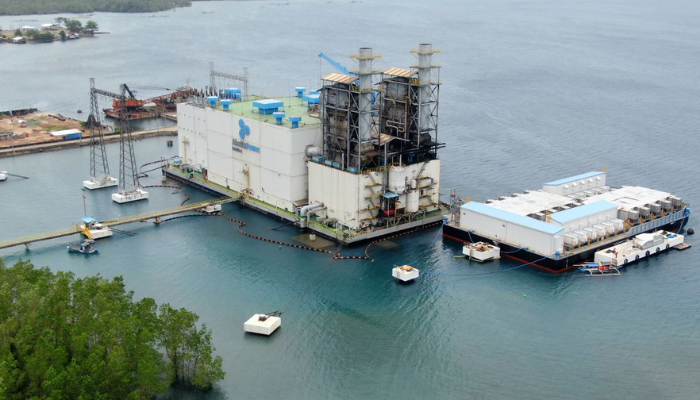In Mindanao, the Philippines, a 49 MW battery storage system has been installed at a floating diesel power plant.
The 100 MW power barge’s diesel engines’ ramping time was decreased from 15 minutes to just three thanks to the integration of the battery energy storage system (BESS). Therma Marine Inc (TMI), which owns and operates the power plant, will experience fuel cost savings and reduced emissions thanks to the BESS. TMI is also contracted to offer ancillary services to the regional grid.
TMI is a division of Aboitiz Power, which produces, distributes, and sells electricity in the Philippines from a variety of hydroelectric, solar PV, and thermal power plants. Of its 4GW capacity, around a quarter comes from renewable sources.
Aboitiz Power leadership announced that commercial operations had started on November 30, having previously stated in a recent earnings call that the project, in Mindanao’s Davao de Oro province, was close to completion as part of a long-term plan to deploy 248MW of battery storage at 12 sites.
The BESS will be supplied and integrated by the Finnish energy and marine technology company Wärtsilä, which will use 10 units of its Gridsolv Quantum battery storage solution and the GEMS control and energy management system (EMS) platform.
According to Frederic Carron, vice president for the Middle East and Asia regions at Wärtsilä’s energy division, the project was a good illustration of “creative thinking” regarding how to use battery storage within the framework of the Philippines’ energy market.
Various ancillary services contracts can be found in the Philippines. Some people may use batteries in a specific way even though they already have assets. On the other hand, those who do have assets may consider the benefits of integrating them [with battery storage].
Large power providers in the Philippines are building a wave of massive battery systems for the delivery of ancillary services, and one analyst noted that firms like Aboitiz and others are essentially competing to have the most effective fleet of power plants.
Today, Aboitiz Power declared that it views the TMI floating barge project as a prototype for future investments in battery storage as well as hybrid renewable energy power plants.
This August, the company began work on a second 24 MW BESS project at the hydroelectric power station SNAP Magat, which is expected to be finished in 2024.

